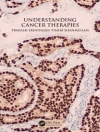Peripheral hormones have a major impact on the brain: they are able to interfere with its development, to affect release of neurotransmitters and concentrations of receptors, to trigger growth factors involved in lesion repair. These multiple actions account for their capacity to modulate a number of physiological parameters, from reproductive functions to memory, behavior and aging. This book based on contributions of pioneer investigators in the field, outlines the role of hormones in pathogenic processes such as mental disturbances or neurodegenerative diseases.
สารบัญ
Activins and inhibins: Physiological roles, signaling mechanisms and regulation.- Twins and the fetal origins hypothesis: An application to growth data.- Towards Understanding the Neurobiology of Mammalian Puberty: Genetic, Genomic and Proteomic Approaches.- The non-genomic Action of Sex Steroids.- Mechanisms of Steroid Hormone Actions on Hypothalamic Nerve Cells: Molecular and Biophysical Studies relevant for Hormone-dependent Behaviors.- Biological Effects and Markers of Exposure to Xenosteroids and Selective Estrogen Receptor Modulators (SERMs) at the Hypothalamic-Pituitary Unit.- Regulation of Neurosteroid Biosynthesis by Neurotransmitters and Neuropeptides.- Progestins and antiprogestins: mechanisms of action, neuroprotection and myelination.- Rapid Effects of Estradiol on Motivated Behaviors.- Behavioral Effects of rapid Changes in Aromatase Activity in the Central Nervous System.- Modulators of Endogenous Neuroprotection: Estrogen, Corticotropin-releasing Hormone and Endocannabinoids.- Estrogens, Aging, and Neurodegenerative Diseases.- Hormones, Stress and Depression.












